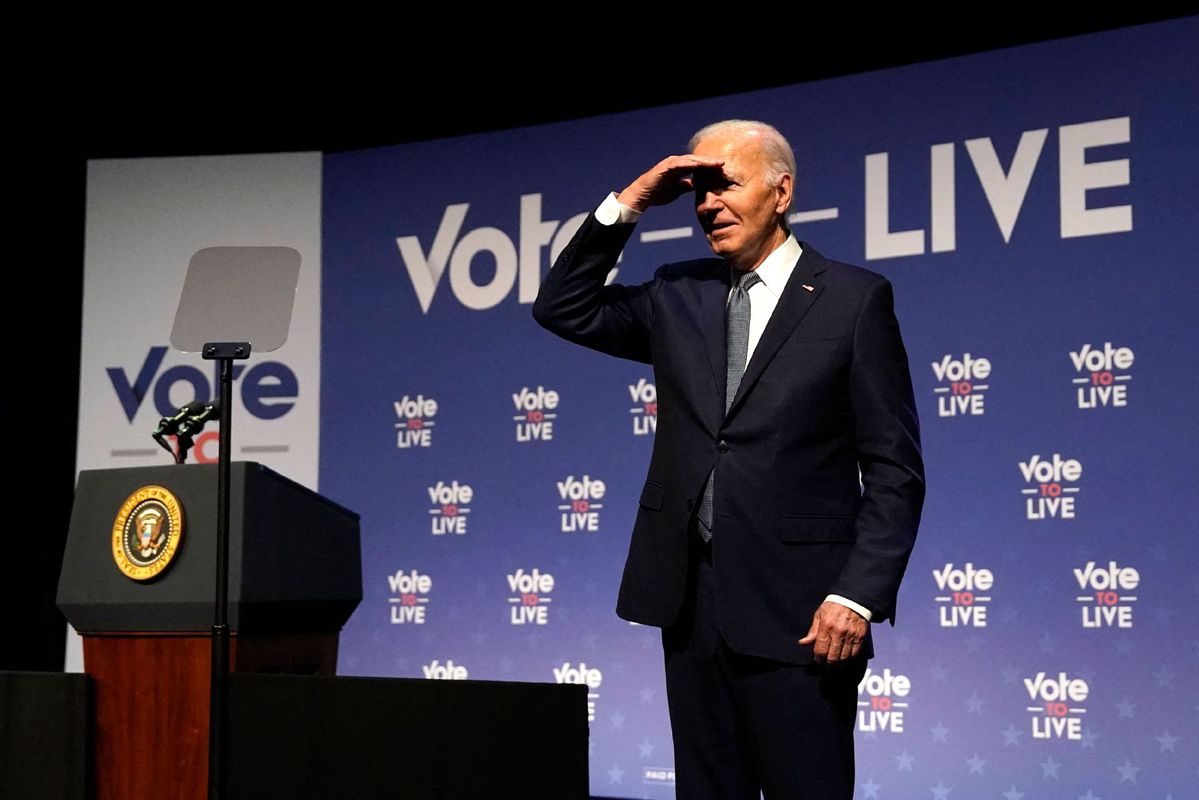White House denies Biden dropping out
US president faces pressure to quit as Trump accepts GOP nomination


With critical days ahead, President Joe Biden is facing the stark reality that more people want him to consider stepping aside from the 2024 election, as former president Donald Trump accepts the Republican nomination at the Republican National Convention in Milwaukee.
The New York Times reported on Thursday that "several people" close to Biden have said he has begun to "accept the idea" that he may have to drop out of the contest.
But the White House denied he would drop out, the Times reported.
Democratic leaders in the House and Senate — Hakeem Jeffries and Chuck Schumer — have told Biden directly that he will not only lose the White House, but also endanger their efforts to win back the House, according to reports in multiple news outlets.
Opinion polls show four of the seven most competitive states are looking increasingly out of reach for Biden. The Trump campaign, meanwhile, said it believes it is now competitive in Democratic-leaning states, including Minnesota, New Hampshire and Virginia.
Senator Jon Tester, who faces a challenging reelection battle in Montana this year, on Thursday, became the 21st congressional Democrat and the second senator to publicly call on Biden to drop out.
Former president Barack Obama has told others that Biden, who was Obama's vice-president, should rethink his candidacy, The Washington Post reported, citing anonymous sources.
This came as Trump predicted an "incredible victory" on Thursday in accepting the Republican presidential nomination at the party's national convention on Thursday.
"We will have an incredible victory," Trump said at the Republican National Convention in Milwaukee.
It was his first speech since a 20-year-old man shot at him, causing a wound to one ear and killing a bystander during a rally last weekend.
Promising to complete a wall on the United States-Mexico border, Trump said an "invasion" of immigrants had brought "destruction" and "misery" to a "nation in decline".
He vowed to end Biden's massive spending on fighting climate change, calling it a "scam".
Meanwhile, US Vice-President Kamala Harris has been courting Asian American voters, speaking at events in Las Vegas and Philadelphia this month in an effort to woo the increasingly important voting bloc.
Harris, who is of South Asian and Jamaican descent, is the first female US vice-president and is encouraging Asian American and Pacific Islander, or AAPI, voters to back Biden's reelection bid.
Harris' speech before a crowd of AAPI community leaders and organizers at the Pennsylvania Convention Center last Saturday was overshadowed later that day by the attempted assassination of Trump at a campaign rally in Butler, Pennsylvania.
With rumors of Biden dropping out, political pundits are also speculating whether Harris would make a better candidate against Trump.
The Democratic National Convention will begin on Aug 19 in Chicago.
The Philadelphia event was organized by Asian Pacific Islander American Vote, or APIAVote, an advocacy group focused on mobilizing Asian American voters.
The 2024 Asian American Voter Survey, which APIAVote helped conduct along with three other groups, found that 46 percent polled said they would likely vote for Biden, down from 54 percent in 2020, and 31 percent for Trump, up 1 percentage point from 2020, with the rest undecided.
The survey of 2,479 voters from the six largest Asian American groups was released on July 10.
Christine Chen, co-founder and executive director of APIAVote, said in a news release that "while there's little evidence of a broad political realignment of Asian American voters, recent elections have shown that their political identities are more tenuous than their voting habits imply, and that when candidates make concerted efforts to engage them, Asian American voters are persuadable".
The survey also found that 31 percent identify as independent, compared with 25 percent in 2020.
Agencies contributed to this story.
belindarobinson@chinadailyusa.com

































